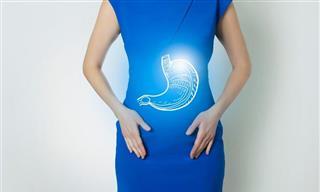What role does potassium play in the body?
Potassium is what is known as an electrolyte - a mineral that is dissolved in water and helps conduct electrical impulses in the body. It’s the third most abundant mineral in the body, and it works alongside other electrolytes, such as sodium and magnesium to accomplish a variety of functions, namely:
- Helps regulate blood pressure
- Conducts nerve impulses
- Balances water and pH in the body
- Is important for digestion
- Plays a role in muscle contractions, including heart rhythm.
Getting enough potassium from our diet has a variety of positive outcomes for our health, and those who get enough of it have lower blood pressure, less water retention, a reduced incidence of stroke, osteoporosis, and kidney stones. Most health organizations recommend getting between 3.500 and 4.700 mg of potassium every day. Since fruit and vegetables are the richest sources of potassium, those of us who adhere to a Western diet high in processed foods and very low in fresh produce are not able to get enough of the mineral from our diet. This could ultimately lead to a potassium deficiency, known as hypokalemia.
Symptoms of potassium deficiency
The symptoms of potassium deficiency vary depending on the severity of the deficiency and range from mild to severe, which is exactly the order in which we list them below.
- Fatigue and muscle weakness
Fatigue and general weakness are usually the first noticeable signs of potassium deficiency. Because potassium is involved in muscle contractions, a lack of the mineral may cause muscle weakness. A scarcity of potassium in the brain may also lead to mood changes and mental health issues. There’s also some evidence to suggest that inadequate levels of potassium in the body may increase blood sugar levels, which can also contribute to the feeling of fatigue.
We have muscles in our gut, too. These muscles stimulate contractions that help food travel through the digestive tract. Since potassium is involved in all muscle contractions, a lack thereof may lead to indigestion and constipation. In severe cases, the gut may even become paralyzed.
Uncontrollable muscle movements and painful spasms in the muscles can also be a symptom of moderate potassium deficiency. Patients who experience this symptom don’t have enough potassium to control muscle movements. In severe cases, a person may experience muscle aches and stiffness, which are a very alarming sign, as it means that your muscle cells don’t get enough oxygen and start leaking and degrading.
If your heart starts racing or skips a beat without a reason, it may be a sign of a moderate to severe potassium deficiency. The same symptom is fine when you’re doing physical activities or feeling anxious, but when it occurs while you’re resting, it could point to arrhythmia, a heart condition that is linked to many serious heart conditions.
Severe potassium deficiencies can lead to breathing difficulties, as this mineral is the messenger from the brain that tells our lungs to expand and contract. When potassium levels are critically low, patients may experience difficulty breathing, in rare cases, to the point that the lungs stop working altogether.
The causes of a potassium deficiency
The good news is that a diet that is slightly low in potassium is rarely the cause of a severe deficiency and mostly accounts for milder cases of hypokalemia. There are certain medications and conditions, however, which together with a diet low in potassium can lead to a severe potassium deficiency. A sudden loss of fluids can lead to hypokalemia, for example, so excess sweating, diarrhea, and vomiting are often the cause of the condition.

Certain medications, such as diuretics that are commonly used to treat hypertension can likewise make you lose a lot of water (and potassium). Other conditions that disrupt the body’s ability to absorb nutrients, such as Inflammatory bowel disease (IBD), as well as kidney disease and the use of some antibiotics are also known to lead to hypokalemia.
If you are in either of these high-risk groups and you’re experiencing any of the symptoms we mentioned above, consider asking for a test from your doctor to make sure your potassium levels are in check. While mild cases of potassium deficiency are best addressed with a potassium-rich diet, severe cases may require supplementation. Do not, however, take potassium supplements on your own, especially if you’re a senior or someone suffering from kidney problems, as they may damage your kidneys.
The safest way to maintain adequate levels of potassium is by including many potassium-rich foods in your diet every day. In the image above, we list the amount of potassium present in 100 grams of 10 common foods with relation to the Recommended Daily Allowance (RDA) of the mineral. To get more information about foods that contain plenty of the mineral, read our article 10 Potassium-Rich Foods.
Share this article with family and friends!
 Go to BabaMail
Go to BabaMail

























































